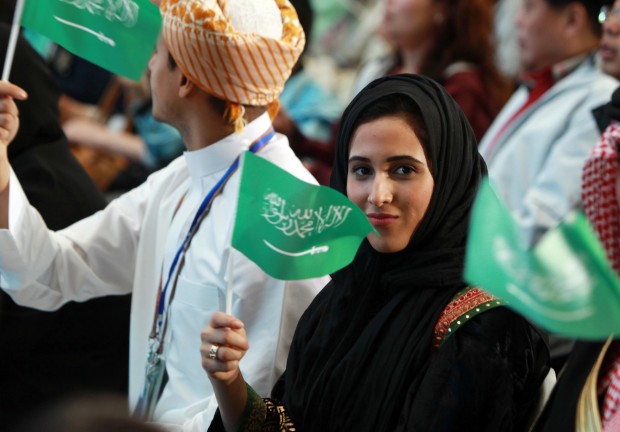
Hundreds of Saudi women began campaigning for public office on Sunday, in a first for women in the conservative kingdom’s slow reform process.
More than 800 women are standing alongside thousands of men in the 12 December municipal ballot, which will also mark the first time that women in Saudi Arabia are allowed to vote. This decision was met by feminine support, as a Saudi local in her twenties said, “We will vote for the women even though we don’t know anything about them. It’s enough that they are women.”
Despite that Saudi authorities eliminated two activists of the 865 running for seats, Loujain Hathloul who has been detained for more than two months after she tried to drive into the kingdom last December from the United Arab Emirates, in defiance of a Saudi ban on women driving, and Nassima al-Sadah, a human rights activist and would-be candidate in the Gulf coast city of Qatif, said officials informed her late on Saturday that her name had been removed from the list.
Ruled by King Salman, the oil-rich state has no elected legislature but has faced intense western scrutiny over its human rights record. The absolute monarchy, which applies its strict interpretation of Islam, has faced widespread criticism for its lack of equal rights. Saudi Arabia is the only country where women are not allowed to drive. They must also cover themselves in black from head to toe in public and require permission from male family members to travel, work or marry.
Gadea Al-Kahtany, spokesman for the Public Committee for the municipal elections, said through his twitter account, that women are not to meet with men voters, and male spokespersons would be used for that, also in promotional posters, brochures, and videos their faces won’t appear.
About 7,000 people are vying for seats on 284 municipal councils in the vote, the Saudi electoral commission said. Only about 131,000 women have signed up to vote, compared with more than 1.35 million men, out of a native Saudi population of almost 21 million.
Aside from transport problems, women say registration to vote was hindered by bureaucratic obstacles and a lack of awareness of the process and its significance.
There is also disappointment at the performance of local councils and their limited powers – restricted to streets, public gardens and rubbish disposal.
Although the voting age has been lowered to 18 from 21 and the proportion of elected council members has increased to two-thirds, winning a seat remains a challenge for women in an electorate where male voters vastly outnumber them.
Saud al-Shammry, a 43-year-old Riyadh resident, said it was time for a new approach. “We strive for development and real change, free from tribal or family biases,” he said. He said there was “a big possibility” he could vote for a woman, if her platform was convincing.




